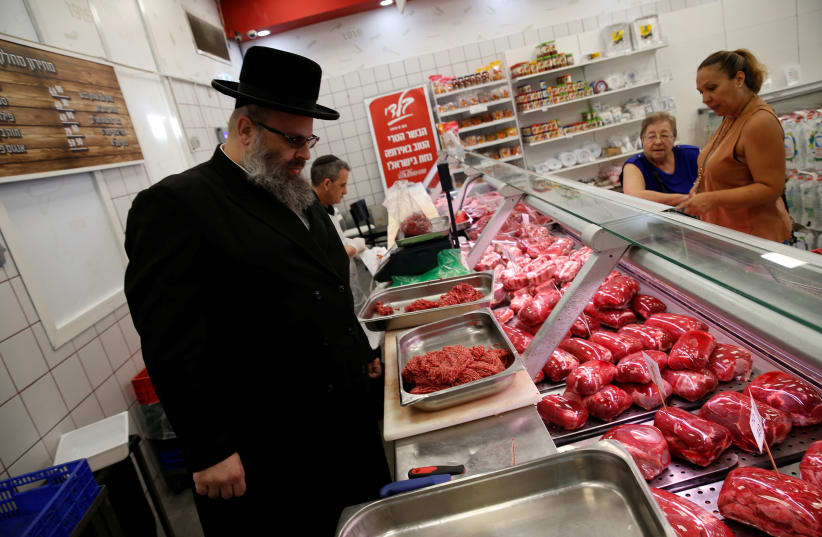Washington Post Staff Writer
Monday, October 18, 2010
Campbell Soup Co., the Camden, N.J., food giant, has been fighting a grass-roots boycott of its products after its Canadian subsidiary rolled out a line of soups certified as halal, meaning they’re prepared according to Islamic dietary laws.
Campbell Co. of Canada introduced the soups in a few Canadian markets in January, although American bloggers didn’t catch up to the news until earlier this month.
That’s when the tempest in a tomato-soup can started.
Blogger Pamela Geller began calling for a boycott earlier this month via her widely read site, Atlas Shrugs. Other bloggers soon joined in.
The halal soups, designated with a special label, are available only in Canada. The company has no plans to offer a similar line in the United States, said John Faulkner, a company spokesman.
In an interview, Geller, who was instrumental in whipping up opposition to an Islamic community center and mosque in Lower Manhattan, said she has no objection to the halal certification itself. Rather, she said, she opposes Campbell’s decision to have its Canadian products certified by the Islamic Society of North America (ISNA), an organization that government prosecutors alleged had ties to the terrorist group Hamas in a 2007 conspiracy case.
“No one is suggesting they refrain from this line,” Geller said. “No one is suggesting they not have halal food. I’m not against halal food any more than I’m against kosher food. My issue is who’s doing the certifying.”
ISNA, an organization based in Plainfield, Ind., was designated an “unindicted co-conspirator” in the prosecution of a charitable organization that funneled money to Hamas, the Islamist organization that rules the Gaza Strip. Hamas has been named a terrorist organization by the U.S. State Department.
Critics like Geller also allege that ISNA has ties to the Muslim Brotherhood, a fundamentalist political movement founded in Egypt in the 1920s. The State Department does not include the Brotherhood on its list of foreign terrorist organizations.
ISNA has denied any ties to Hamas or to officials of a defunct charity called Holy Land Foundation, who were convicted in the conspiracy case. It has specifically condemned religious extremism and violence. In the wake of the conspiracy trial, Jewish and Protestant organizations issued statements in support of ISNA. A spokesperson for the group was unavailable for comment.
In its ads for the halal soups, Campbell calls ISNA “the largest nonprofit, religious, educational, and non-political Islamic organization in North America.” Campbell investigated ISNA’s background and found “no issues of concern,” according to Faulkner.
The group was referred to Campbell by a Canadian trade organization whose member companies have used ISNA for their halal certification for years. “We point out to the people supporting this [boycott] that they are a very legitimate entity,” Faulkner said. “We feel very comfortable working with them.”
As a historical footnote, he noted that Campbell set up a tent at the World Trade Center site immediately after the attacks in 2001 and offered free soup and other food to rescue workers and the news media for two weeks.
The alleged links between ISNA and the Islamist groups appear to be lost on a Facebook page promoting the Campbell boycott. The Facebook page simply urges consumers to “Boycott Campbell Soup for their certification of their products as halal and supporting the Muslim Brotherhood.”
Since its introduction on Oct. 5, the page has attracted nearly 3,500 “friends,” many of whom have posted anti-Muslim comments and articles unrelated to the boycott. The postings range from aggressive to hostile. “No to Campbell,” reads one of the tamer comments. “They cater to Muslims.”
Faulkner said Campbell hasn’t noticed any effect on its sales since the boycott began.



